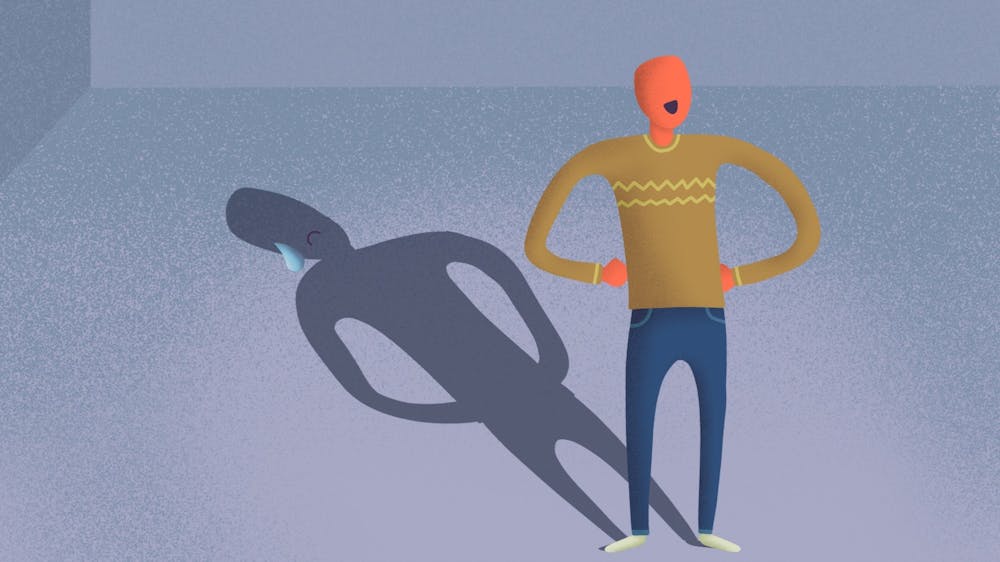The COVID-19 pandemic paused everyday life, forcing us into a period of personal reflection and unavoidable solitude. I, like most people, only met with my friends or previous acquaintances post-vaccination, leaving me completely unprepared to revisit my least favorite social phenomenon: being perceived.
A return to in-person activities is slowly teaching society to come together and re-learn what it's like to live again.
The idea that someone has views of me that I either believe to be false or know nothing about is anxiety inducing. Though my therapist once said societal perceptions of me are none of my business unless others publicize them, I wonder and worry about them nonetheless.
This especially applies to traditionally complimentary adjectives that don’t offend or flatter me, but rather make me question such impressions based upon my external personality.
When we returned to in-person social gatherings, a friend of mine told me she “admired my confidence” and I nearly fell out of my chair.
Not only was I unable to recall an instance where I embodied this confident paradigm, but I was also not-so-gently reminded of my recurring mental gymnastics. I’m constantly fighting a slew of negative thoughts that punctuate my daily stream of consciousness.
Understandably, I keep these thoughts mostly to myself — except when I publish them in opinion columns. It’s occasionally embarrassing to admit a deficiency in confidence or self-esteem. How could a person with troubling self-esteem appear confident to their peers?
Simply put, confidence and self-esteem are inherently two different things.
Confidence is mostly how you appear to other people, said Tali Weissberger, a writer and instructional designer at the Attention Deficit Disorder Association.
Alternatively, self-esteem is how you see yourself internally.
Edward Hirt is a professor of social psychology at IU. He used the sociometer theory to describe how self-esteem operates on a spectrum and is our interpretation of other people’s perceptions.
“The people at the high end of that distribution really see themselves as good people who are just as good as anybody else — people who have a strong sense of self worth,” Hirt said. “People who are at the lower end of that distribution are not particularly convinced that they are as worthy as others. There’s that sense of unworthiness that permeates people with low self-esteem.”
Simulating self-confidence is much easier than having high self-esteem because it merely requires us to convey certain attitudes, not shift our thought processes. My friend deemed me confident because I was projecting a certain composure to avoid revealing inner struggles. Occasionally, I employ this as a coping mechanism or survival strategy, but other times it’s a circumstantial positive reaction to a particular moment in time.
However, it’s important to garner a basic sense of both to achieve some kind of Maslowian self-actualization. Hirt said appearing confident but not feeling so internally can be due to a combination of having relatively high self-esteem but feeling unsure about it, leading to self-sabotage. But he said having a balance of confidence and self-esteem can aid in overcoming life’s inevitable hardships.
“If people just inherently believe that they’re worthy people, they can move forward in life,” Hirt said.
Cognitive behavioral therapy suggests identifying troubling situations, becoming aware of thoughts and beliefs, challenging these beliefs and adjusting them accordingly can increase self-esteem. Other strategies recommend avoiding comparison to others, establishing boundaries and accepting strengths and limitations equally.
Regardless, surrounding yourself with people who believe you have confidence and make you feel more confident in yourself can be one of the most positive influences on your mental health.
“I suspect it’s pretty hard to undermine somebody’s programming, but it does seem like we can cultivate experiences in such a way that we can build on successes and positive outcomes to start creating a better sense of self and reinterpret some of those past things,” Hirt said.
At the end of the day, most everybody portrays themselves in a way they’re comfortable being observed. However, it’s important to acknowledge how potentially misleading this may be.
Though I greatly appreciate my friend perceiving me to be a confident person, it means nothing unless I actually believe the same within myself.
Natalie Gabor (she/her) is a senior studying journalism with minors in business marketing and philosophy. She hopes to one day find a career that tops her brief stint as a Vans employee.






